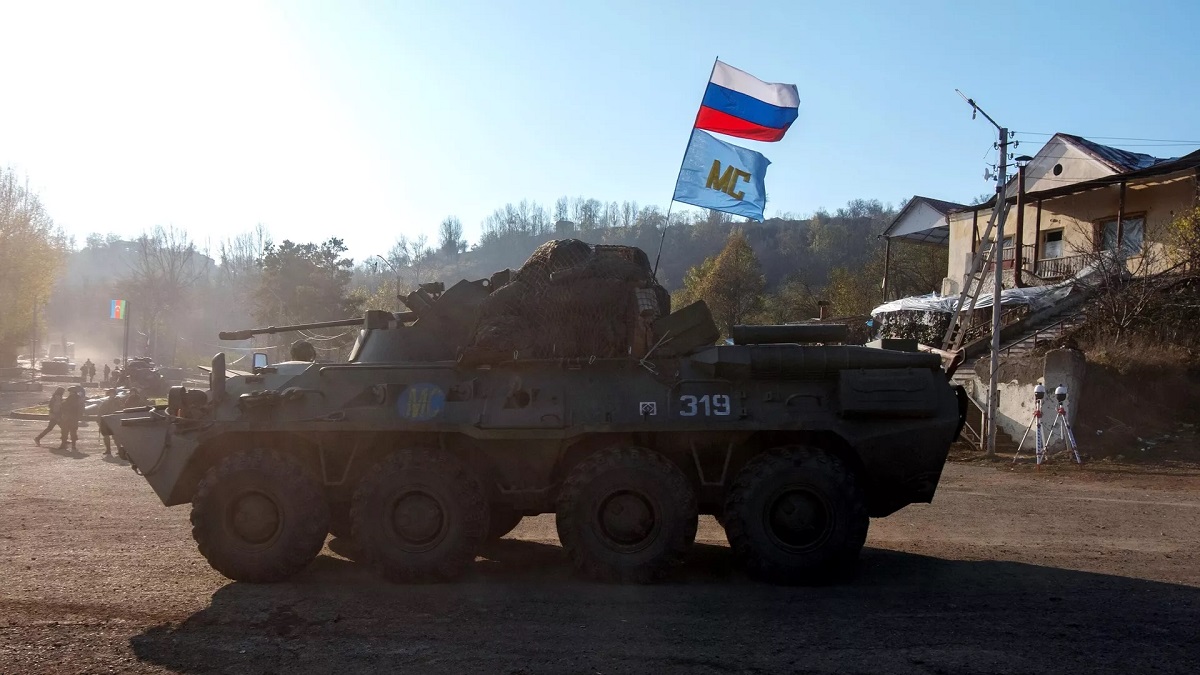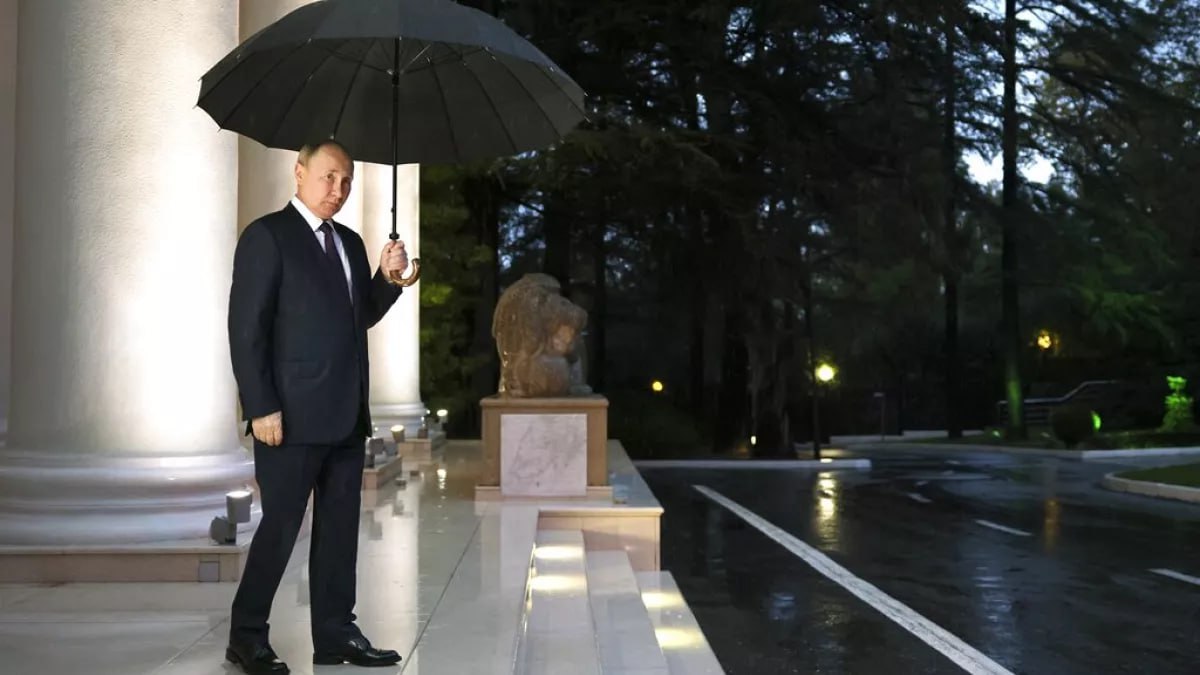"Historic event for Azerbaijan": Analysts on the withdrawal of Russian peacekeepers from Karabakh
Russian peacekeepers leave Karabakh
The withdrawal of the Russian peacekeeping contingent from Karabakh remains the number one topic in Azerbaijan‘s expert community and local social media segment. “The withdrawal of Russian troops from Karabakh is a historic event for Azerbaijan,” according to a publication by the Azerbaijani analytical group “Şərqə Baxış” (“View to the East”).
- QR codes on graves in Azerbaijan “tell” the life stories of the deceased
- Abkhazian foreign minister to host a TV show on Russian Channel One
- “Is the West offering Armenia an insufficient proposal instead of genuine support?” Opinion
The withdrawal of the Russian peacekeeping mission from Karabakh has commenced, with a significant portion of military personnel and equipment already leaving Azerbaijan. Meanwhile, it has been announced today that the joint Turkish-Russian monitoring center, located in the Agdam district, is also concluding its mission.
It can be concluded that, in this manner, Karabakh has transitioned under full control of the Azerbaijani Armed Forces.
We offer readers the opinions of Azerbaijani experts on the withdrawal of the peacekeeping mission from Karabakh and their forecasts regarding the consequences of this event.
The analytical group “Şərqə Baxış” (“View to the East”)
“The premature withdrawal of Russia’s peacekeeping mission from Karabakh came as a surprise to all. On the night of November 10, 2020, when Russian peacekeepers were deployed to Karabakh, the most optimistic forecasts suggested that, at best, this situation would change by 2025.
The war in Ukraine, Armenia’s rapprochement with the West, the particular interest of Western powers in the South Caucasus, the Russian-Turkish dialogue, and Russia’s strategy towards Azerbaijan can be cited as reasons for the unexpectedly emerging reality in the region.
In September 2023, Russia attempted to play a very risky game. Moscow, remaining neutral towards Azerbaijan’s counter-terrorism operations against the separatist regime, calculated that the West would perceive the exodus of the Armenian population from Karabakh as ethnic cleansing. In response, Western powers would impose sanctions against Azerbaijan, ultimately placing Azerbaijan under Russia’s full influence.
However, the West accurately assessed the situation and, by not reacting to the counter-terrorism operation, thwarted Kremlin’s plans. The voluntary departure of the Armenian population from Karabakh undermined any legitimacy of the Russian peacekeeping mission.
In this sense, Russia seemingly turned a blind eye to events unfolding not in its favor. Meanwhile, the West calmly observed the proceedings with the prospect of wresting Armenia away from Russia.
As evident, Moscow chose the path of adaptation to the process and the establishment of control over events rather than opposing the formation of new realities in the South Caucasus. It can be unequivocally stated that the South Caucasus is no longer an appendage of Russia.
Currently, an open struggle of major world powers is underway in this region, and Russia is forced to participate in this struggle not as a regional manager but as one of the sides in the regional game. In other words, Russia in the South Caucasus is currently just a regular actor, not a favorite dictating the rules of the game.
Of course, the withdrawal of Russian troops from Karabakh is a historic event for Azerbaijan. However, one cannot forget that the over 300-kilometer land border, the Russian fleet in the Caspian Sea, Russia’s soft power in Azerbaijan, Azerbaijanis residing in Russia, and various separatist elements under Russia’s control remain factors influencing Russian-Azerbaijani relations.
Neighboring Russia is Azerbaijan’s fate, and Azerbaijan is forced to perpetually consider this neighborhood, from which it could suffer serious consequences.”
Elkhan Shahinoglu, head of the Atlas Analytical Center
“After the thesis ‘Russia does not leave the place where it comes’ lost its meaning, some started to speculate that the premature withdrawal of Russian servicemen from Karabakh became possible due to some oral commitments from Baku to the Kremlin, for example, Azerbaijan’s possible membership in the EAEU at Russia’s behest.
The condition for Baku’s entry into this organization has long been known: Armenia must sign a peace treaty with Azerbaijan. After the signing of such a treaty, Azerbaijan’s membership in the EAEU may become a subject of discussion. The member countries of this organization, except Armenia, are partners of Azerbaijan, and there are close economic ties with each of them.
But Azerbaijan’s membership in the CSTO is impossible. Azerbaijan does not join military blocs and for this reason is a member of the Non-Aligned Movement. Moscow understands and accepts this logic.
As for Armenia, the start of the withdrawal of Russian peacekeepers from Karabakh will strengthen prime minister Nikol Pashinyan’s position in the fight against radical opposition. Radical opposition in Armenia criticizes Pashinyan’s rapprochement with the US and Europe as opposed to Russia, stating that it will not benefit Yerevan.
Despite Armenia’s defeat in the Second Karabakh War and the end of the separatist regime in Karabakh, radical Armenian opposition is against distancing Yerevan from the Kremlin.
But now, as Russia begins to leave Karabakh, Pashinyan can claim that Russia has finally abandoned its role as the guarantor of Armenian security. The situation created should push Pashinyan to address issues with Azerbaijan.
Russia is gradually leaving the South Caucasus, and the US and the European Union will not confront Azerbaijan and Turkey solely for the sake of Armenia. Pashinyan understands this, as the only alternative for Armenia is to normalize relations with Azerbaijan and Turkey.”




















